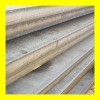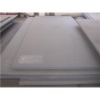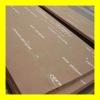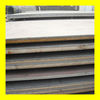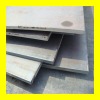- Steel Pipes[10]
- Steel Channels[5]
- Steel H-Beams[2]
- Steel Sheets[4]
- Other Mechanical Parts[4]
- Steel Strips[6]
- Stainless Steel Pipes[7]
- Stainless Steel Sheets[7]
- Steel Round Bars[3]
- Square Steel[4]
- Contact Person : Ms. zhang Sai
- Company Name : Tianjin Dongmao Special Steel Metal Material Trade Co., Ltd.
- Tel : 86-22-26614461
- Fax : 86-22-26914461
- Address : Tianjin,Tianjin,Room 401, Door 2, Building 1, Tianyang Apartment, Beichen District
- Country/Region : China
- Zip : 300400
SS400 mild steel plate with steel plate 6mm thick
1. SS400 mild steel plate , SS400 mild steel plate with steel plate 6mm thick
DESCRIPTION OF GOODS:
One: Hot Rolled steel plates: Hot rolling is a metalworking process that occurs above the recrystallization temperature of the material. After the grains deform during processing, they recrystallize, which maintains an equiaxedmicrostructure and prevents the metal from work hardening. The starting material is usually large pieces of metal, like semi-finished casting products, such as slabs, blooms, and billets. If these products came from a continuous casting operation the products are usually fed directly into the rolling mills at the proper temperature. In smaller operations the material starts at room temperature and must be heated. This is done in a gas- or oil-fired soaking pit for larger workpieces and for smaller workpieces induction heating is used. As the material is worked the temperature must be monitored to make sure it remains above the recrystallization temperature. To maintain a safety factor a finishing temperature is defined above the recrystallization temperature; this is usually 50 to 100 °C (90 to 180 °F) above the recrystallization temperature. If the temperature does drop below this temperature the material must be re-heated before more hot rolling.
Hot rolled metals generally have little directionality in their mechanical properties and deformation induced residual stresses. However, in certain instances non-metallic inclusions will impart some directionality and workpieces less than 20 mm (0.79 in) thick often have some directional properties. Also, non-uniformed cooling will induce a lot of residual stresses, which usually occurs in shapes that have a non-uniform cross-section, such as I-beams and H-beams. While the finished product is of good quality, the surface is covered in mill scale, which is an oxide that forms at high-temperatures. It is usually removed via pickling or the smooth clean surface process, which reveals a smooth surface.Dimensional tolerances are usually 2 to 5% of the overall dimension.
Hot rolled mild steel seems to have a wider tolerance for amount of included carbon than cold rolled, making it a bit more problematic to use as a blacksmith. Also for similar metals, hot rolled seems to typically be less costly
Hot rolling is used mainly to produce sheet metal or simple cross sections, such as rail tracks.
Two:Steel Production: When iron is smelted from its ore by commercial processes, it contains more carbon than is desirable. To become steel, it must be melted and reprocessed to reduce the carbon to the correct amount, at which point other elements can be added. This liquid is then continuously cast into long slabs or cast into ingots. Approximately 96% of steel is continuously cast, while only 4% is produced as cast steel ingots.
The ingots are then heated in a soaking pit and hot rolled into slabs, blooms, or billets. Slabs are hot or cold rolled into sheet metal or plates. Billets are hot or cold rolled into bars, rods, and wire. Blooms are hot or cold rolled into structural steel, such as I-beams and rails. In modern foundries these processes often occur in one assembly line, with ore coming in and finished steel coming out.Sometimes after a steel's final rolling it is heat treated for strength, however this is relatively rare.
STEEL GRADES: Carbon steel, composed simply of iron and carbon, accounts for 90% of steel production.High strength low alloy steel has small additions (usually < 2% by weight) of other elements, typically 1.5% manganese, to provide additional strength for a modest price increase.
Low alloy steel is alloyed with other elements, usually molybdenum, manganese, chromium, or nickel, in amounts of up to 10% by weight to improve the hardenability of thick sections.[1] Stainless steels and surgical stainless steels contain a minimum of 11% chromium, often combined with nickel, to resist corrosion (rust). Some stainless steels, such as the ferritic stainless steels are magnetic, while others, such as the austenitic, are nonmagnetic. Corrosion-resistant steels are abbreviated as CRES.
Some more modern steels include tool steels, which are alloyed with large amounts of tungsten and cobalt or other elements to maximize solution hardening. This also allows the use of precipitation hardening and improves the alloy's temperature resistance.Tool steel is generally used in axes, drills, and other devices that need a sharp, long-lasting cutting edge. Other special-purpose alloys include weathering steels such as Cor-ten, which weather by acquiring a stable, rusted surface, and so can be used un-painted.
APPLICATION: Iron and steel are used widely in the construction of roads, railways, other infrastructure, appliances, and buildings. Most large modern structures, such as stadiums and skyscrapers, bridges, and airports, are supported by a steel skeleton. Even those with a concrete structure will employ steel for reinforcing. In addition, it sees widespread use in major appliances and cars. Despite growth in usage of aluminium, it is still the main material for car bodies. Steel is used in a variety of other construction materials, such as bolts, nails, and screws.
Other common applications include shipbuilding, pipeline transport, mining, offshore construction, aerospace, white goods (e.g. washing machines), heavy equipment such as bulldozers, office furniture, steel wool, tools, and armour in the form of personal vests or vehicle armour (better known as rolled homogeneous armour in this role). Steel was the metal of choice for sculptor Jim Gary and a frequent choice for sculpture by many other modern sculptors.
2. we have SS400 steel plate on strock. SS400 mild steel plate with steel plate 6mm thick
| SS400 | pass | 09H-24568-505 | 22.00 | 2438 | 6096 | 1 |
| SS400-K | pass | 09Z-06510-089 | 6.00 | 1560 | 7600 | 11 |
| SS400 | pass | 09H-06187-507 | 10.00 | 2250 | 12060 | 1 |
| SS400 | pass | 09H-26438-501 | 10.00 | 2438 | 6096 | 1 |
| SS400 | pass | 09H-41062-511 | 10.00 | 2370 | 12030 | 1 |
| SS400 | pass | 09H-32613-518 | 10.00 | 2438 | 6096 | 1 |
| SS400-W | pass | 09Z-75054-092 | 11.00 | 2100 | 7500 | 1 |
| SS400 | pass | 09Z-78638-030 | 16.00 | 1950 | 5320 | 1 |
| SS400-H | pass | 09H-60998-504 | 25.00 | 2760 | 5700 | 1 |
| SS400-H | pass | 09H-53206-503 | 25.00 | 2760 | 5700 | 1 |
| SS400 | pass | 09H-74809-504 | 10.00 | 2500 | 8000 | 1 |
| SS400-H | pass | 09Z-82295-099 | 16.00 | 2000 | 6000 | 1 |
| SS400-H | pass | 09Z-82295-099 | 16.00 | 2000 | 6000 | 1 |
| SS400-H | pass | 09H-66653-502 | 32.00 | 2400 | 5800 | 1 |
| SS400 | pass | 09H-72235-502 | 36.00 | 3011 | 5871 | 1 |
| SS400 | pass | 09H-72235-502 | 36.00 | 3011 | 5871 | 1 |
| SS400-H | pass | 10H-08209-503 | 50.00 | 2400 | 4700 | 1 |
| SS400-H | pass | 10H-08209-503 | 50.00 | 2400 | 4700 | 1 |
| SS400 | pass | 10Z-01878-098 | 12.70 | 2040 | 12030 | 1 |
| SS400 | pass | 10H-20892-03 | 40.00 | 2000 | 9600 | 1 |
| SS400 | pass | 09Z-82188-017 | 22.00 | 1900 | 7500 | 1 |
| SS400 | pass | 10Z-61043-002 | 22.00 | 1900 | 7500 | 1 |
| SS400-H | pass | 10H-12896-501 | 32.00 | 2400 | 5800 | 1 |
| SS400-H | pass | 10H-12896-505 | 32.00 | 2400 | 5800 | 1 |
| SS400-H | pass | 10H-12896-505 | 32.00 | 2400 | 5800 | 1 |
| SS400-H | pass | 10H-12897-01 | 32.00 | 2400 | 5800 | 1 |
| SS400-H | pass | 10H-25541-01 | 40.00 | 2400 | 5500 | 1 |
| SS400-H | pass | 10H-25543-01 | 40.00 | 2400 | 5500 | 1 |
| SS400-H | pass | 10H-25543-04 | 40.00 | 2400 | 5500 | 1 |
| SS400-H | pass | 10H-20803-02 | 28.00 | 2400 | 5900 | 1 |
| SS400-H | pass | 10H-20803-03 | 28.00 | 2400 | 5900 | 1 |
| SS400-H | pass | 09H-76919-501 | 40.00 | 2400 | 5500 | 1 |
| SS400-H | pass | 09H-76919-502 | 40.00 | 2400 | 5500 | 1 |
| SS400-H | pass | 09H-76919-502 | 40.00 | 2400 | 5500 | 1 |
| SS400-H | pass | 09H-76921-502 | 36.00 | 2400 | 5500 | 1 |
| SS400-H | pass | 09H-76921-503 | 36.00 | 2400 | 5500 | 1 |
| SS400-H | pass | 10H-09353-01 | 28.00 | 2400 | 5900 | 1 |
3. steel plates pictures
SS400 mild steel plate with steel plate 6mm thick
3. NAME CARDS
SS400 mild steel plate with steel plate 6mm thick

